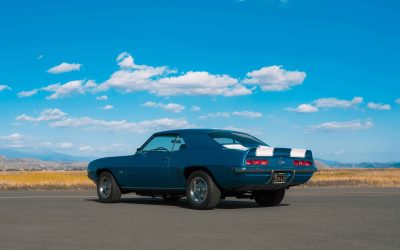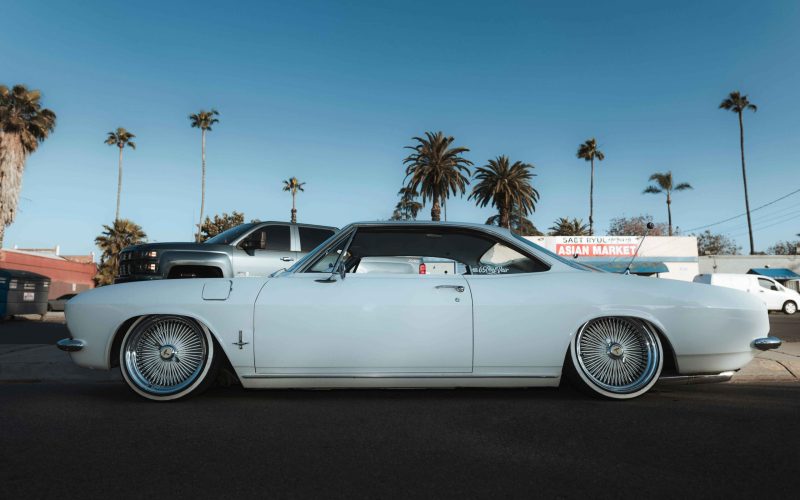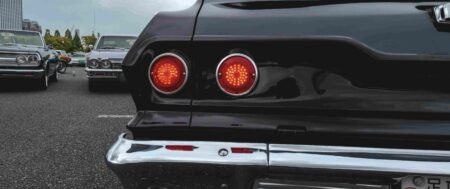Questions to Ask When Buying a Used Cars
Questions to ask when buying a used car from a dealer are crucial because they help uncover vital information about the vehicle’s history, condition, and potential issues. By asking questions, buyers can learn about the car’s maintenance records, accident history, odometer reading, and any previous mechanical issues.
This information allows buyers to make informed decisions, assess the car’s value accurately, and identify potential red flags. Asking questions also helps establish transparency and trust between the buyer and the seller, ensuring a smoother and more satisfactory buying experience while minimizing the risk of purchasing a faulty or misrepresented vehicle. Let’s have a look at questions to ask a used car dealer.

What is the Car Worth?

This is one of the most important questions to ask while dealing with a $1,000 down payment car with no credit check. The worth of a car and its monthly payment for the total amount are determined by various factors, including its make, model, age, vehicle history report, condition, mileage, and market demand. Additionally, factors such as optional features, maintenance history, pre-purchase inspection, and any previous accidents or damage can influence its value.
The car’s worth is often assessed through market research, appraisal tools, and consulting industry guides like the Kelley Blue Book or NADA. Ultimately, the car’s worth is subjective and can vary based on individual preferences and negotiation skills. Evaluating these factors comprehensively helps determine a fair and accurate value for the car in question.
Call Now For Pre-Qualification Info
What's the Car's mileage?

Car mileage, often referred to as fuel efficiency or fuel economy, is a crucial factor mentioned in a vehicle history report that influences a vehicle’s overall performance and operating costs. It represents the distance a car can travel per unit of fuel consumed, typically measured in miles per gallon (MPG) or liters per 100 kilometers (L/100km). Understanding car mileage is essential for both buyers and owners, as it impacts fuel expenses, the environmental footprint, and the overall cost of ownership.
In the United States, the average fuel efficiency of used cars has steadily improved over the years due to advancements in technology, stricter emissions regulations, and consumer demand for more fuel-efficient vehicles. According to data from the Environmental Protection Agency (EPA), and service records, the average fuel efficiency for passenger cars in the U.S. was approximately 25.4 miles per gallon (MPG) in 2020. For light trucks (including SUVs, pickups, and vans), the average fuel efficiency was slightly lower, at around 20.7 MPG.
These figures represent an improvement compared to previous years, reflecting the automotive industry’s efforts to produce more fuel-efficient vehicles. However, it’s important to note that individual car mileage can vary significantly based on factors such as vehicle type, make, model, engine size, driving conditions, and maintenance practices.
For example, compact cars and hybrids tend to have higher fuel efficiency ratings, with some models achieving over 50 MPG on the highway. On the other hand, larger vehicles like SUVs and trucks typically have lower fuel efficiency due to their size and weight, with some models averaging around 15-20 MPG.
In buying a used car, factors such as driving habits, factory warranty, road conditions, and vehicle maintenance also play a significant role in determining car mileage. Aggressive driving behaviors such as rapid acceleration and excessive speeding during highway driving can decrease fuel efficiency, while proper maintenance, including regular tune-ups and tire rotations, can help improve mileage.
In addition to traditional gasoline-powered vehicles purchased from a private seller, advances in alternative fuel technologies have introduced new options for consumers seeking higher fuel efficiency. Hybrid vehicles, which combine an internal combustion engine with an electric motor, offer improved mileage by utilizing regenerative braking and electric power assist. Similarly, electric vehicles (EVs) operate solely on electric power, providing zero-emission driving and potentially lower operating costs compared to traditional gasoline-powered cars.
How Old is the Car?
The age and car ownership history are determined by its manufacturing year, suppose it is 1968. As of the current year, 2024, the car is 56 years old. Over its five-and-a-half decades of existence, it has witnessed numerous historical events, technological advancements, and societal changes.
Despite its age, the car continues to stand as a testament to enduring craftsmanship and automotive engineering. Each passing year adds to the rich history and character of used cars.

Are There Any Mechanical Issues in Cars?

Over its long lifespan, the used car has not been immune to mechanical issues. Despite its resilience, wear and tear has taken its toll, manifesting in various challenges that have required attention and maintenance.
One common issue has been with its aging engine, which, though still whispering tales of its past glory, has experienced reduced efficiency and occasional misfires. The wear on internal components like pistons, valves, and seals has led to decreased performance and the need for frequent tune-ups.
Additionally, the car’s suspension system has shown signs of fatigue. Years of absorbing the bumps and jolts of the road have left the shocks and struts worn, resulting in a less comfortable ride and diminished handling. The suspension’s bushings and joints have also deteriorated, causing occasional rattles and shakes.
Electrical gremlins have occasionally plagued the car as well. The wiring harnesses, connectors, and switches, while reliable for decades, have started to exhibit signs of corrosion and intermittent faults. This has led to sporadic issues with lights, sensors, and other electronic components.
Despite these challenges, diligent maintenance and occasional repairs have kept the car on the road, a testament to both its enduring craftsmanship and the dedication of its caretakers. As it continues its journey through time, each mechanical issue becomes a chapter in its storied history, adding depth to its character and resilience.
Is there any Damage to the Exterior of the Car?
The exterior of the older cars with the marks can be a big deal breaker. Years of exposure to the elements and encounters with the unforgiving terrain of the road have left their visible imprints. The minor scrapes, scratches, and dents that adorn its surface can lower the car’s value.
Rust spots, like, dots on the body, are evidence of repair work with moisture and corrosion. Each imperfection only adds to its character as a visual record of the journeys undertaken and the memories made. As it continues to navigate the highways and byways of life, the exterior of the car serves as a canvas, bearing witness to the passage of time and the adventures yet to come. So it is best to have a vehicle report from the original owner. So that you can get your vehicle repaired by a trusted mechanic.

What has been replaced, repaired, or updated?

Over the years, various components of the car’s exterior have undergone replacement, repair, or updating to ensure its continued reliability and performance. The engine, the heart of the vehicle, has seen several overhauls, with parts like pistons, valves, car handles, and gaskets being replaced to maintain optimal function.
The transmission system has been serviced, with fluid changes and occasional repairs to address wear and tear. Suspension components such as shocks, struts, and bushings have been replaced to restore ride comfort and handling.
The braking system has undergone periodic maintenance, with brake pads, rotors, and calipers being replaced as needed to ensure safety. Additionally, the electrical system has seen updates and repairs, with wiring harnesses, connectors, and switches being replaced to address intermittent faults. Overall, a combination of routine maintenance, independent inspection, and targeted repairs reported by an independent mechanic plays an important role in making a car, allowing it to continue its journey through time with confidence and reliability.
Call Now For Pre-Qualification Info
Is there a Vehicle History Report Available

Yes, vehicle history reports containing mechanical problems are commonly available for specific vehicles, providing valuable information about a vehicle’s past. In used car shopping, these car ownership history reports compile data from various sources, including government records, insurance companies, and auto dealerships, to create a comprehensive overview of the car’s history. They typically include details such as previous owners, title transfers, accident history, service records, mileage verification, and any reported incidents like flood or salvage status.
Vehicle history reports play a crucial role in helping potential buyers make informed decisions when purchasing a used car. By reviewing the report of a specific vehicle, buyers can uncover any potential issues, or red flags that may impact the vehicle’s value or safety. Additionally, sellers often use these reports to demonstrate transparency and build trust with prospective buyers. Overall, vehicle history reports serve as a valuable tool in the certified pre-owned vehicle market, providing peace of mind and assurance to both buyers and sellers alike.
Is the car under warranty?

A car warranty is of paramount importance in safeguarding both the financial investment and the peace of mind of the used car owner. It serves as a form of insurance against unforeseen mechanical failures or defects that may arise during the warranty period. By covering the cost of repairs, a fair price,, or replacements for covered components, warranties mitigate the risk of unexpected expenses, providing a layer of financial security for the owner.
Moreover, warranties mentioned in the car ownership history upgrade the buyer’s confidence in the quality and reliability of the vehicle. Manufacturers who offer comprehensive warranty coverage demonstrate their commitment to standing behind their products, instilling trust and loyalty among customers. Additionally, warranties contribute to overall customer satisfaction and the vehicle history reports by ensuring that any issues encountered with the vehicle can be addressed promptly and efficiently, minimizing inconvenience for the owner.
So, buying a used car warranty not only protects the owner’s financial interests but also shows how the car is maintained and creates a positive ownership experience by promoting trust, reliability, and peace of mind throughout the vehicle’s lifespan.
Call Now For Pre-Qualification Info
How would this car impact my car insurance premiums?

Car insurance premiums offered by insurance companies play a significant role in car deals, impacting both the initial cost of purchasing a vehicle and the ongoing expenses of ownership. High insurance premiums offered by any insurance company can deter potential buyers, particularly those on a tight budget, as they add to the overall cost of ownership. Consequently, private sellers may need to adjust their pricing strategies or offer incentives to offset the perceived financial burden of insurance.
Moreover, insurance premiums from private sellers can vary based on factors such as the vehicle’s make and model, safety features, vehicle history report, and location. Buyers may factor in these considerations when selecting a vehicle, opting for models with lower insurance premiums to minimize long-term costs.
Furthermore, car dealerships may collaborate with insurance providers to offer bundled deals or discounted insurance rates as part of the purchase package, thus enhancing the overall value of the used vehicle proposition for buyers. Ultimately, the impact of car insurance on car deals underscores the interconnectedness of various factors influencing purchasing decisions in the automotive market.
Call Now For Pre-Qualification Info
Conclusion
Asking questions can make the car buying process as easy as dealing, which empowers buyers to make informed decisions. Through inquiries about the vehicle’s history from the previous owner, warranty coverage, insurance premiums, car ownership history, pre-purchase inspection, and other pertinent details, buyers can gain clarity on potential risks, costs, and benefits associated with their purchase. Moreover, while buying a used car, asking questions demonstrates car ownership history, signaling to dealerships the seriousness of the buyer’s intent and potentially leading to more favorable negotiations. Ultimately, the exchange of information fosters transparency, builds trust, and ensures that both parties are satisfied with the outcome of the transaction, resulting in a smoother and more satisfactory car-buying experience for all involved.







